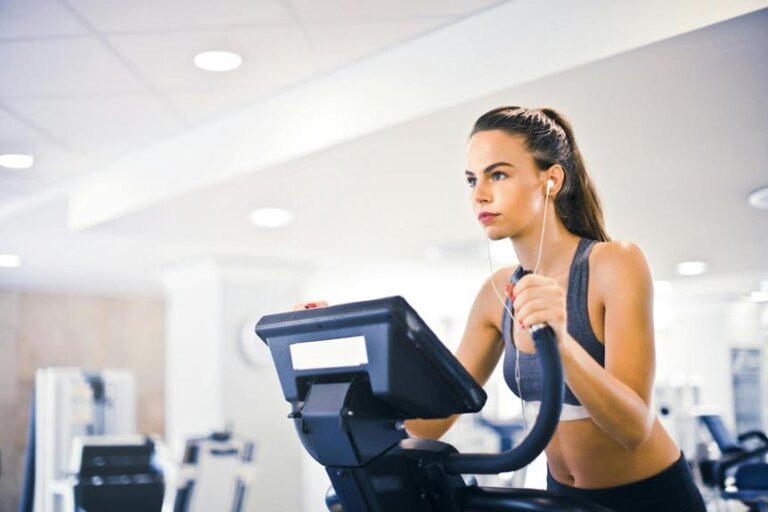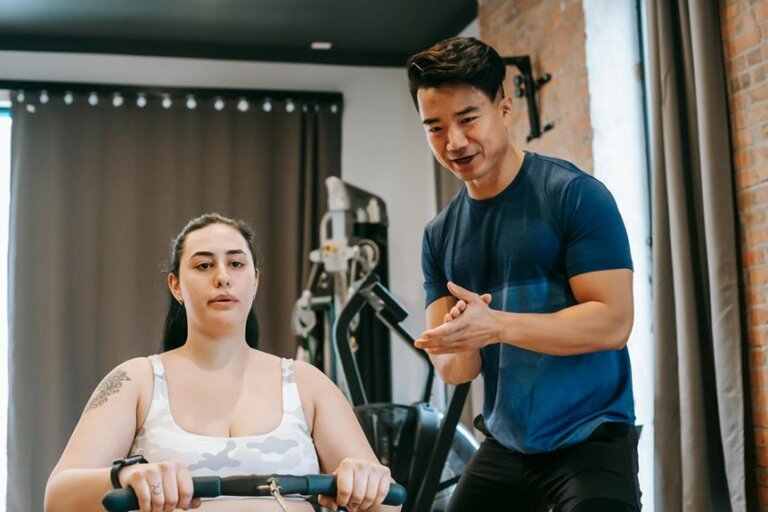Fueling Your Workouts: Nutrition Tips for Active Women
When it comes to powering through your workouts, have you ever considered that what you eat might be as important as the exercises you do? As an active woman, your body's nutritional needs are unique and vital to your performance and recovery.
You're not just feeding your body — you're fueling your energy, strength, and endurance. Let's explore this critical relationship between your diet and your workouts, and how making smarter food choices can transform your fitness journey.
Why not discover the power of nutrition for yourself?
Understanding Your Body's Energy Needs
To fuel your active lifestyle, it's important to understand your body's energy needs and how to effectively meet them. You've got to figure out how many calories you need to maintain, lose, or gain weight. It's not just about counting calories, though. You also need to know where those calories are coming from.
Your body uses various nutrients to produce energy. Carbohydrates, for example, are your body's primary energy source. They're broken down into glucose, which your muscles use during activity. Protein, on the other hand, isn't a major energy source, but it's essential for repairing and building muscles. Fats are also crucial, supplying energy for low-intensity activities and supporting your body's functions.
It's not enough to just consume these nutrients, though. You need to balance them based on your energy needs. Too many carbs and not enough protein can leave you feeling sluggish and hinder your muscle recovery. Too few fats and your energy levels may plummet.
Importance of Balanced Diet for Workouts
Given the body's complex energy needs, it's clear that maintaining a balanced diet is crucial for fueling your workouts effectively. You might wonder why. It's simple. Your body requires a variety of nutrients to function optimally, particularly when you're engaging in strenuous physical activity.
A balanced diet provides necessary proteins, carbs, and fats which are your body's main energy sources. Proteins are essential for muscle repair and growth. Carbs, on the other hand, are your body's preferred energy source during high-intensity workouts. And don't avoid fats—they're necessary for hormone production and act as a backup energy source.
But it's not just about these three. Vitamins and minerals play key roles too, from aiding in energy production to supporting immunity. You can't neglect hydration either. Water regulates your body temperature and helps transport nutrients.
Pre-Workout Nutrition Guidelines
Before you hit the gym, it's crucial to fuel your body with the right foods.
Let's talk about understanding pre-workout nutrition, pinpointing the ideal foods to consume, and timing these meals perfectly.
After all, what you eat before you exercise can make a big difference in your performance and recovery.
Understanding Pre-Workout Nutrition
If you're gearing up for a sweat session, it's crucial to fuel your body with the right nutrients to maximize your workout performance. Understanding pre-workout nutrition is all about timing and balance.
Aim to eat a meal or snack 1-3 hours before your workout; this gives your body time to digest and convert food into usable energy. Your meal should be a mix of proteins, carbs, and a bit of healthy fats. Proteins are essential for muscle repair, carbs provide you with energy, and fats help you feel satiated.
You're not just eating to satisfy hunger; you're strategically fueling your body for optimal performance and recovery. Remember, everyone's different, and it might take a bit of trial and error to find what works best for you.
Ideal Pre-Workout Foods
While it's essential to know when and why to eat before a workout, it's just as crucial to understand what you should eat. Your pre-workout meal should be a balance of proteins, carbohydrates, and fats.
Proteins provide the amino acids you need to build and repair muscles. Carbs, especially complex ones like whole grains, provide sustained energy. Fats, though slower to digest, keep you feeling full and can provide long-term fuel for extended workouts.
Some ideal pre-workout foods include bananas for quick energy, oatmeal for sustained release of glucose, chicken or turkey for lean protein, and nuts for healthy fats. Remember, it's not just about what you eat, but also about eating the right proportions.
Timing Your Pre-Workout Meals
Understanding the timing of your pre-workout meals is as important as knowing what to eat. You've got to fuel your body at the right time to maximize your performance. Generally, it's best to eat a full meal about 2-3 hours before your workout. This gives your body enough time to digest and convert the food into usable energy.
If you can't fit in a full meal, don't worry. You can still have a small, carb-rich snack about 30-60 minutes before you start sweating. This'll provide quick energy without leaving you feeling too full.
Best Post-Workout Recovery Foods
You've just completed your workout and you're feeling great. Now it's time to refuel your body with the right foods to aid recovery.
Let's explore:
protein-packed snacks,
hydrating foods and drinks, and
antioxidant-rich options that will help your body bounce back quickly and efficiently.
Protein-Packed Recovery Snacks
After an intense workout, it's crucial to refuel your body with protein-packed recovery snacks to aid in muscle repair and growth. You've pushed your muscles hard, so it's only fair to give them what they need to rebuild. Reach for a snack that's high in protein but low in sugar and unhealthy fats.
Greek yogurt with a handful of almonds, a smoothie made with protein powder and fruit, or a slice of whole-grain bread with natural peanut butter are all excellent options. Don't forget about eggs, a perfect protein source, hard-boiled for convenience.
Try to consume your recovery snack within 45 minutes of your workout. Your muscles are primed to absorb nutrients during this window, maximizing the benefits of your hard-earned sweat session.
Hydrating Foods and Drinks
Don't underestimate the power of hydration, especially post-workout, as certain foods and drinks can significantly aid your body's recovery process.
Watermelon, for instance, isn't only refreshing but also packed with water to replenish lost fluids. If you're craving something savory, go for cucumber or celery, which are both water-rich.
When it comes to drinks, coconut water is a star. It's a natural electrolyte drink that can restore your energy levels. Alternatively, a simple glass of water infused with a slice of lemon or orange can do the trick.
Antioxidant-Rich Recovery Options
Incorporating a plethora of antioxidant-rich foods into your post-workout routine can greatly enhance your recovery and boost your overall health. These foods help to repair muscle tissue, reduce inflammation, and neutralize free radicals generated during exercise.
You can't go wrong with berries, such as blueberries, strawberries, and raspberries, all of which are packed with antioxidants. Dark chocolate is another tasty option that's rich in flavonoids. For a protein kick, try adding some almonds or walnuts. They're high in Vitamin E, an antioxidant that aids muscle recovery.
Role of Hydration in Exercise
When you're working up a sweat, staying hydrated becomes critical to maintaining your performance and health. Water isn't just your body's cooling system; it also helps transport nutrients, eliminate waste, and maintain your energy levels.
You've probably heard the old rule to drink eight glasses a day, but your hydration needs can skyrocket when you're active. It's recommended to start drinking water before you exercise, to ensure you're well-hydrated from the get-go. Aim for 17 to 20 ounces a couple of hours before your workout.
During your workout, you should continue to drink. Aim for 7 to 10 ounces every 10 to 20 minutes. Afterwards, replenish any lost fluids. For every pound lost during the workout, drink 16 to 24 ounces of water.
Don't rely on thirst as your guide. When you feel thirsty, you're already dehydrated. Instead, keep a bottle handy and sip regularly. Remember, dehydration can lead to fatigue, poor performance, and even health risks. So drink up, and keep your body's engine running smoothly.
In the next section, we'll discuss how protein affects performance. But for now, make hydration your top priority.
How Protein Affects Performance
While hydration is key, it's also crucial to understand how protein plays a pivotal role in your athletic performance. Protein isn't just for bodybuilders; it's a vital nutrient that every active woman needs. It aids in repairing and rebuilding your muscles after strenuous workouts. Without enough protein, your body can't recover as quickly and you may feel more fatigued during your next workout.
When you exercise, tiny tears form in your muscle tissue. Consuming adequate protein helps repair these micro-tears, thus strengthening your muscles. The process of protein synthesis also promotes muscle growth and development. So whether you're lifting weights, running marathons, or practicing yoga, your body needs protein to perform optimally.
But how much protein do you need? It depends on your individual needs and fitness goals. As a general guideline, aim to consume around 0.8 to 1.2 grams of protein per kilogram of body weight each day. And remember, it's not just about quantity, but also quality. Opt for lean sources of protein like chicken, fish, eggs, and plant-based proteins. By making protein a priority, you're giving your body the fuel it needs to reach its full athletic potential.
Smart Snacking: Fuel On-The-Go
Beyond ensuring you're getting enough protein, you also need to think about smart snacking, especially when you're always on the go. It's not just about grabbing the nearest granola bar. You need to ensure your snacks are nutrient-dense and well-balanced to give you the energy you need.
Don't let your busy schedule be the reason for unhealthy snacking. Keep portable fruit like bananas and apples on hand. They're packed with fiber and can help you feel full. Nuts and seeds are also great on-the-go snacks. They're high in healthy fats and protein, which can provide long-lasting energy.
But remember, portion control is key. Too much of a good thing can still lead to weight gain. So, pack your snacks in small, single-serving containers to avoid overeating.
Also, don't forget to stay hydrated. No snack can replace the benefits of water. Carry a reusable water bottle and drink regularly throughout the day.
Frequently Asked Questions
How Can Menstrual Cycles Affect My Performance and Nutrition Needs During Workouts?
Menstrual cycles can impact your workout performance. You might experience fatigue or discomfort which could affect your endurance. Your nutrition needs may increase due to hormonal changes, requiring more iron and protein intake.
Are There Specific Vitamins or Minerals That Are Particularly Important for Active Women?
Yes, active women need specific vitamins and minerals. Iron's crucial for oxygen transport, calcium for bone health, and B-vitamins for energy production. You'll also benefit from vitamin D, magnesium, and antioxidants like vitamin C and E.
How Does Menopause Impact a Woman's Energy Needs and Workout Performance?
As you navigate the seas of menopause, your energy needs may increase. It's crucial to adjust your diet to maintain your workout performance. Hormonal changes can affect your metabolism, necessitating more mindful nutrition.
Can Pregnancy Impact My Workout Nutrition, and if So, How Should I Adjust My Diet?
Yes, pregnancy can impact your workout nutrition. You'll need extra calories and nutrients for both your workout and baby's growth. Consider adding more protein, iron, and calcium-rich foods to your diet. Always consult your doctor.
How Can Hormonal Fluctuations Affect My Body's Response to Pre- and Post-Workout Nutrition?
Hormonal fluctuations can impact how your body absorbs and utilizes nutrients. During certain phases of your cycle, you might need more carbs or protein post-workout. It's crucial to listen to your body's signals.
Conclusion
Fueling your body for workouts is like prepping a car for a long journey. You wouldn't set off without the right fuel, and your body needs the same consideration.
Balance your diet, hydrate adequately, and power-up with pre and post-workout snacks. Don't forget protein's role in boosting your performance.
With these nutrition tips, you're all set to rev up your workouts and power through each session. Remember, your body deserves the best fuel for the best performance.






